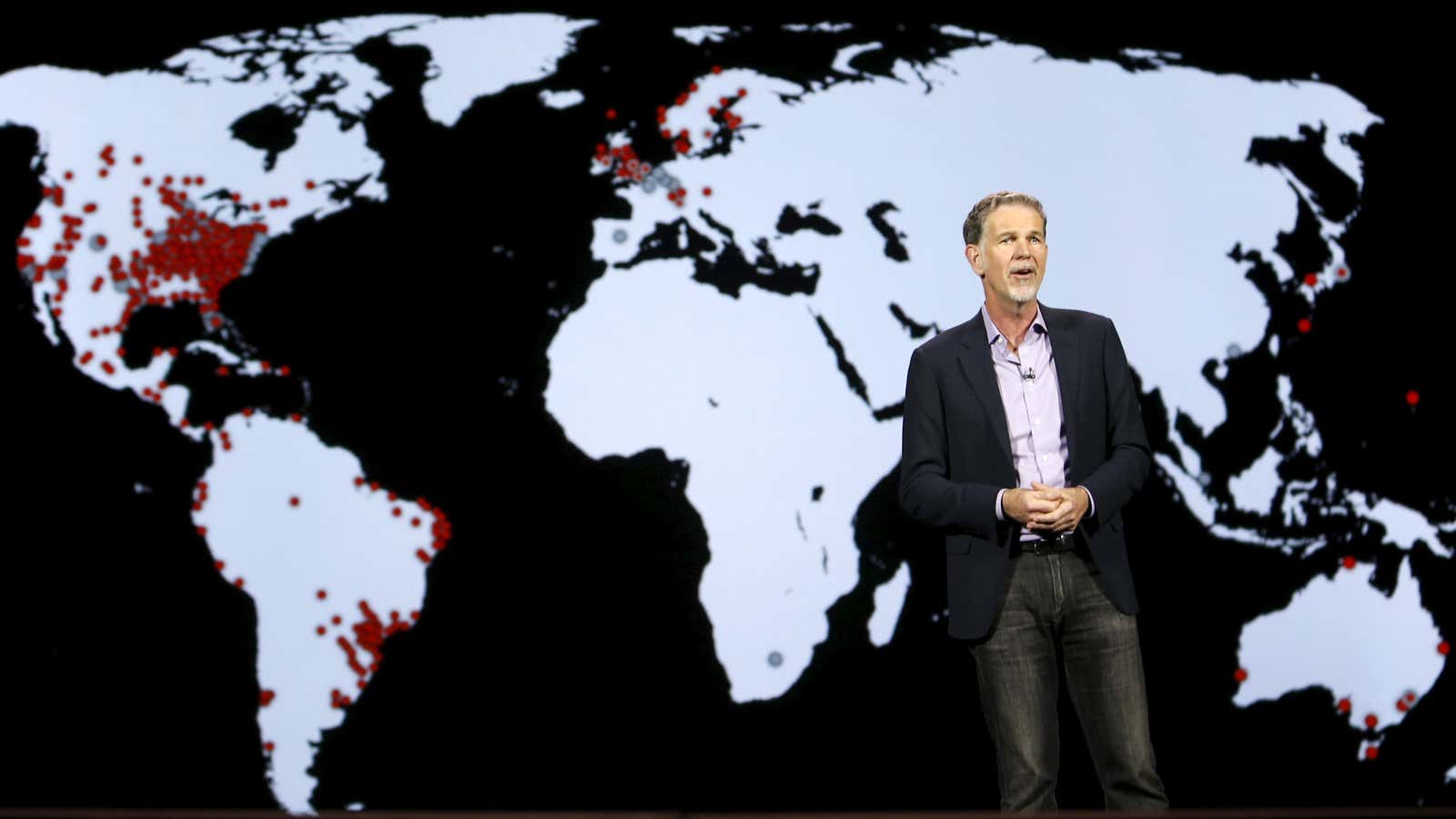The world’s largest online video-streaming company is all praise for the biggest disruptor in India’s $50 billion telecom sector.
Netflix CEO Reed Hastings believes every country needs a Jio. “Reliance Jio has been a transformational network in India and has brought down data cost massively,” Hastings told The Economic Times newspaper in an interview. “We hope someone would do a Reliance Jio in every other country.”
Hastings’s admiration is not surprising as the Mukesh Ambani-owned company has played a vital role in India’s recent internet boom. Since its launch in September 2016, Jio has triggered a tariff war, offering months of free data and charging dirt-cheap rates. No wonder it has amassed 160 million subscribers. In the process, it has made access to the internet far more affordable in the country, giving a fillip to all online businesses, from social media sites like Facebook to e-commerce to online video-streaming.
Hastings isn’t alone in crediting Jio. Netflix’s Indian rival Hostar also has good things to say.
“In a world that does not fear data charges, video is very often the first port of call for new data users,” Hotstar CEO Ajit Mohan said in a recent research report by the company.
Online video consumption grew nearly five-fold in India in 2017 over the previous year, with small towns logging the highest jump, according to Hotstar’s estimates. The overall online video opportunity in India is poised to touch $1.6 billion by 2022 from $340 million in 2017, according to global media research and consulting firm Media Partners Asia (MPA).
While Hasting’s comment hints that Jio has boosted Netflix’s business in India, the video-streaming service is still far from being the market leader. Launched in India in January 2016, Netflix has far fewer subscribers than several local competitors, according to a 2017 report by KPMG India and the FICCI.
